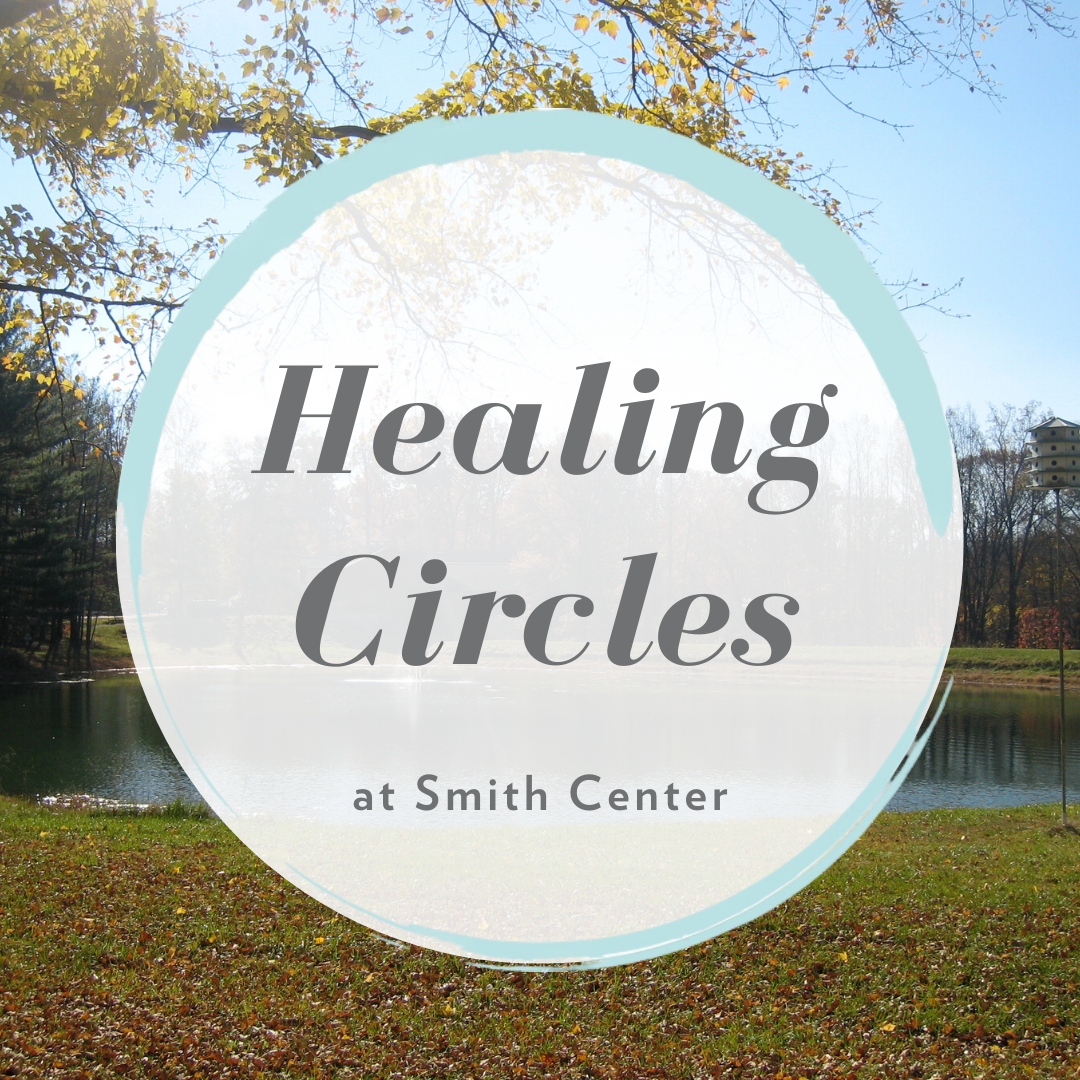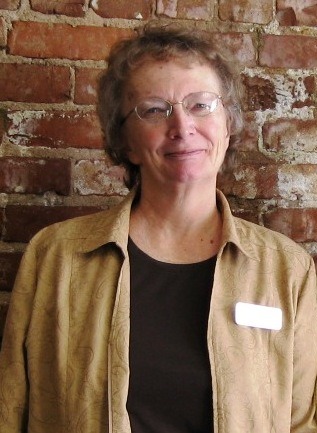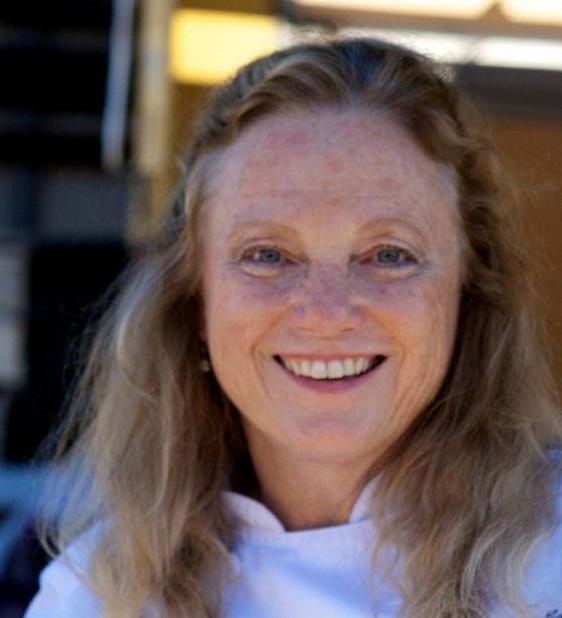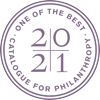with Kiersten Gallagher and Paul Puccinelli
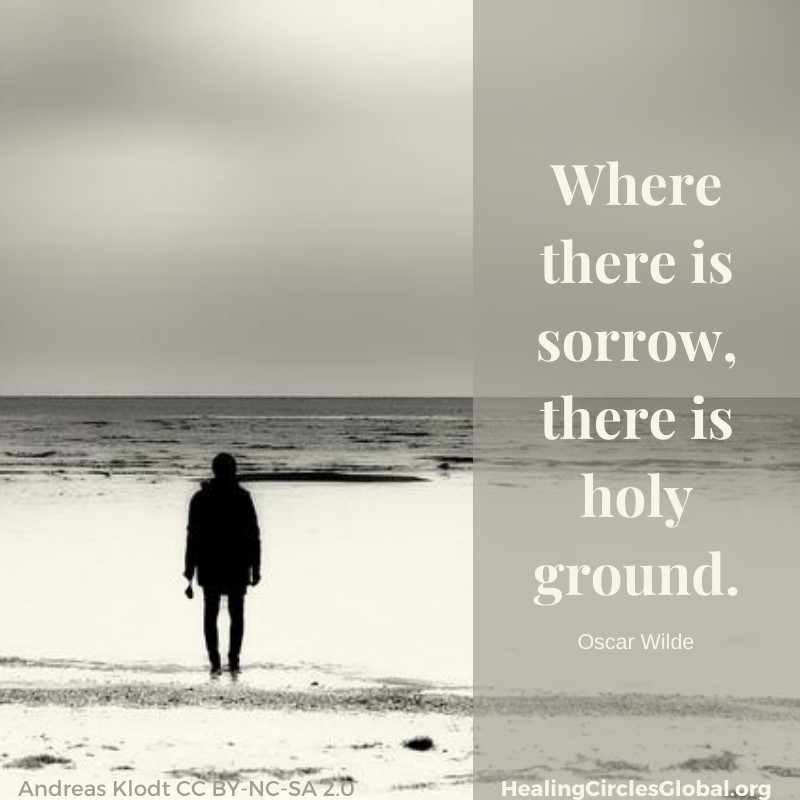
Please join us in a series Healing Circles for Grief “to discover the extent and limits of what is lost, what is left and what is possible.” – John Schneider
If you have lost a loved one, this is an opportunity to share what is on your heart and mind right now, to listen and be listened to deeply and generously. Together we create a safe space for listening to messages from our inner experience.
Our healing circles are a safe and supportive space to walk with each other through these times. Each circle is a blend of sharing and silence, compassion, and curiosity. Our agreements ensure acceptance and confidentiality. We honor our own unique paths to healing and respect the choices of others.
Some Assumptions about Grief
- The experience of grief is unique for each individual. While we can make some general assumptions, there is no template that describes the experience for all people.
- Grief is cumulative. That is, each time loss is grieved, the grief encompasses the lifetime of loss and the remnants of each experience.
- Grief following a significant loss is most often a lifelong process, with each pivotal point in life bringing the grief back up to be processed from a new perspective.
- Grief, loss and suffering fundamentally changes and reshapes the individual.
- Grief is not about forgetting or disconnecting. Rather, healthy grief is about remembering the parts of self that get lost amidst the experience and reorienting the individual in their relationship with self, the world and others.
- Grief is a whole body experience: emotional, physical, spiritual and intellectual. Each have a wide range of expression which can cue us that grief is present.
- While grief and trauma are often intertwined there are significant differences between them. Trauma should be addressed with trauma specific interventions that often go beyond what is possible in circles.
Adapted from Khris Ford
Grieving Together Healing Circle will meet Weekly on Wednesdays from 2:00-3:30pm EST for 6 weeks.
Grief Circle Dates:
- October 6, 13, 20 & 27
- November 3 & 10
About Kiersten Gallagher

Kiersten has served as the Cancer Support Program Director for Smith Center since 2014. Before coming to Smith Center, she had the privilege to serve individuals and families living with cancer at Wellness House of Annapolis. Kiersten aims to offer programs to reduce stress and help participants to see the world we live in from different perspectives. She thoroughly enjoys teaching yoga and creativity classes at SmithCenter and encourages gentle movement and creativity in the healing process. Kiersten is a certified yoga instructor through Yoga Alliance and also has her YCAT (Yoga Therapy in Cancer and Chronic Illness) Professional Certification through the Integral Yoga Academy. She has completed Patient Navigation training through Smith Center’s Institute for Integrative Oncology Navigation and has also completed the Commonweal Healing Circles: Advanced Cancer Support Training. Kiersten is also certified in CLIMB®(Children’s Lives Include Moments of Bravery) a program that aims to build upon the strengths of children and increase his/her ability to cope with stress associated with a parent’s illness. She believes in a holistic approach to healing, human relationships and is grateful for each and every day. In her spare time, you may find Kiersten laughing with friends, cycling, taking art classes, practicing yoga and spending time with her husband Shane, son Liam, and dogs Hooper and Pablo.
with Kiersten Gallagher and Paul Puccinelli

Please join us in a series Healing Circles for Grief “to discover the extent and limits of what is lost, what is left and what is possible.” – John Schneider
If you have lost a loved one, this is an opportunity to share what is on your heart and mind right now, to listen and be listened to deeply and generously. Together we create a safe space for listening to messages from our inner experience.
Our healing circles are a safe and supportive space to walk with each other through these times. Each circle is a blend of sharing and silence, compassion, and curiosity. Our agreements ensure acceptance and confidentiality. We honor our own unique paths to healing and respect the choices of others.
Some Assumptions about Grief
- The experience of grief is unique for each individual. While we can make some general assumptions, there is no template that describes the experience for all people.
- Grief is cumulative. That is, each time loss is grieved, the grief encompasses the lifetime of loss and the remnants of each experience.
- Grief following a significant loss is most often a lifelong process, with each pivotal point in life bringing the grief back up to be processed from a new perspective.
- Grief, loss and suffering fundamentally changes and reshapes the individual.
- Grief is not about forgetting or disconnecting. Rather, healthy grief is about remembering the parts of self that get lost amidst the experience and reorienting the individual in their relationship with self, the world and others.
- Grief is a whole body experience: emotional, physical, spiritual and intellectual. Each have a wide range of expression which can cue us that grief is present.
- While grief and trauma are often intertwined there are significant differences between them. Trauma should be addressed with trauma specific interventions that often go beyond what is possible in circles.
Adapted from Khris Ford
Grieving Together Healing Circle will meet Weekly on Wednesdays from 2:00-3:30pm EST for 6 weeks.
Grief Circle Dates:
- October 6, 13, 20 & 27
- November 3 & 10
About Kiersten Gallagher

Kiersten has served as the Cancer Support Program Director for Smith Center since 2014. Before coming to Smith Center, she had the privilege to serve individuals and families living with cancer at Wellness House of Annapolis. Kiersten aims to offer programs to reduce stress and help participants to see the world we live in from different perspectives. She thoroughly enjoys teaching yoga and creativity classes at SmithCenter and encourages gentle movement and creativity in the healing process. Kiersten is a certified yoga instructor through Yoga Alliance and also has her YCAT (Yoga Therapy in Cancer and Chronic Illness) Professional Certification through the Integral Yoga Academy. She has completed Patient Navigation training through Smith Center’s Institute for Integrative Oncology Navigation and has also completed the Commonweal Healing Circles: Advanced Cancer Support Training. Kiersten is also certified in CLIMB®(Children’s Lives Include Moments of Bravery) a program that aims to build upon the strengths of children and increase his/her ability to cope with stress associated with a parent’s illness. She believes in a holistic approach to healing, human relationships and is grateful for each and every day. In her spare time, you may find Kiersten laughing with friends, cycling, taking art classes, practicing yoga and spending time with her husband Shane, son Liam, and dogs Hooper and Pablo.
with Kiersten Gallagher and Paul Puccinelli

Please join us in a series Healing Circles for Grief “to discover the extent and limits of what is lost, what is left and what is possible.” – John Schneider
If you have lost a loved one, this is an opportunity to share what is on your heart and mind right now, to listen and be listened to deeply and generously. Together we create a safe space for listening to messages from our inner experience.
Our healing circles are a safe and supportive space to walk with each other through these times. Each circle is a blend of sharing and silence, compassion, and curiosity. Our agreements ensure acceptance and confidentiality. We honor our own unique paths to healing and respect the choices of others.
Some Assumptions about Grief
- The experience of grief is unique for each individual. While we can make some general assumptions, there is no template that describes the experience for all people.
- Grief is cumulative. That is, each time loss is grieved, the grief encompasses the lifetime of loss and the remnants of each experience.
- Grief following a significant loss is most often a lifelong process, with each pivotal point in life bringing the grief back up to be processed from a new perspective.
- Grief, loss and suffering fundamentally changes and reshapes the individual.
- Grief is not about forgetting or disconnecting. Rather, healthy grief is about remembering the parts of self that get lost amidst the experience and reorienting the individual in their relationship with self, the world and others.
- Grief is a whole body experience: emotional, physical, spiritual and intellectual. Each have a wide range of expression which can cue us that grief is present.
- While grief and trauma are often intertwined there are significant differences between them. Trauma should be addressed with trauma specific interventions that often go beyond what is possible in circles.
Adapted from Khris Ford
Grieving Together Healing Circle will meet Weekly on Wednesdays from 2:00-3:30pm EST for 6 weeks.
Grief Circle Dates:
- October 6, 13, 20 & 27
- November 3 & 10
About Kiersten Gallagher

Kiersten has served as the Cancer Support Program Director for Smith Center since 2014. Before coming to Smith Center, she had the privilege to serve individuals and families living with cancer at Wellness House of Annapolis. Kiersten aims to offer programs to reduce stress and help participants to see the world we live in from different perspectives. She thoroughly enjoys teaching yoga and creativity classes at SmithCenter and encourages gentle movement and creativity in the healing process. Kiersten is a certified yoga instructor through Yoga Alliance and also has her YCAT (Yoga Therapy in Cancer and Chronic Illness) Professional Certification through the Integral Yoga Academy. She has completed Patient Navigation training through Smith Center’s Institute for Integrative Oncology Navigation and has also completed the Commonweal Healing Circles: Advanced Cancer Support Training. Kiersten is also certified in CLIMB®(Children’s Lives Include Moments of Bravery) a program that aims to build upon the strengths of children and increase his/her ability to cope with stress associated with a parent’s illness. She believes in a holistic approach to healing, human relationships and is grateful for each and every day. In her spare time, you may find Kiersten laughing with friends, cycling, taking art classes, practicing yoga and spending time with her husband Shane, son Liam, and dogs Hooper and Pablo.
with Kiersten Gallagher and Paul Puccinelli

Please join us in a series Healing Circles for Grief “to discover the extent and limits of what is lost, what is left and what is possible.” – John Schneider
If you have lost a loved one, this is an opportunity to share what is on your heart and mind right now, to listen and be listened to deeply and generously. Together we create a safe space for listening to messages from our inner experience.
Our healing circles are a safe and supportive space to walk with each other through these times. Each circle is a blend of sharing and silence, compassion, and curiosity. Our agreements ensure acceptance and confidentiality. We honor our own unique paths to healing and respect the choices of others.
Some Assumptions about Grief
- The experience of grief is unique for each individual. While we can make some general assumptions, there is no template that describes the experience for all people.
- Grief is cumulative. That is, each time loss is grieved, the grief encompasses the lifetime of loss and the remnants of each experience.
- Grief following a significant loss is most often a lifelong process, with each pivotal point in life bringing the grief back up to be processed from a new perspective.
- Grief, loss and suffering fundamentally changes and reshapes the individual.
- Grief is not about forgetting or disconnecting. Rather, healthy grief is about remembering the parts of self that get lost amidst the experience and reorienting the individual in their relationship with self, the world and others.
- Grief is a whole body experience: emotional, physical, spiritual and intellectual. Each have a wide range of expression which can cue us that grief is present.
- While grief and trauma are often intertwined there are significant differences between them. Trauma should be addressed with trauma specific interventions that often go beyond what is possible in circles.
Adapted from Khris Ford
Grieving Together Healing Circle will meet Weekly on Wednesdays from 2:00-3:30pm EST for 6 weeks.
Grief Circle Dates:
- October 6, 13, 20 & 27
- November 3 & 10
About Kiersten Gallagher

Kiersten has served as the Cancer Support Program Director for Smith Center since 2014. Before coming to Smith Center, she had the privilege to serve individuals and families living with cancer at Wellness House of Annapolis. Kiersten aims to offer programs to reduce stress and help participants to see the world we live in from different perspectives. She thoroughly enjoys teaching yoga and creativity classes at SmithCenter and encourages gentle movement and creativity in the healing process. Kiersten is a certified yoga instructor through Yoga Alliance and also has her YCAT (Yoga Therapy in Cancer and Chronic Illness) Professional Certification through the Integral Yoga Academy. She has completed Patient Navigation training through Smith Center’s Institute for Integrative Oncology Navigation and has also completed the Commonweal Healing Circles: Advanced Cancer Support Training. Kiersten is also certified in CLIMB®(Children’s Lives Include Moments of Bravery) a program that aims to build upon the strengths of children and increase his/her ability to cope with stress associated with a parent’s illness. She believes in a holistic approach to healing, human relationships and is grateful for each and every day. In her spare time, you may find Kiersten laughing with friends, cycling, taking art classes, practicing yoga and spending time with her husband Shane, son Liam, and dogs Hooper and Pablo.
with Kiersten Gallagher and Paul Puccinelli

Please join us in a series Healing Circles for Grief “to discover the extent and limits of what is lost, what is left and what is possible.” – John Schneider
If you have lost a loved one, this is an opportunity to share what is on your heart and mind right now, to listen and be listened to deeply and generously. Together we create a safe space for listening to messages from our inner experience.
Our healing circles are a safe and supportive space to walk with each other through these times. Each circle is a blend of sharing and silence, compassion, and curiosity. Our agreements ensure acceptance and confidentiality. We honor our own unique paths to healing and respect the choices of others.
Some Assumptions about Grief
- The experience of grief is unique for each individual. While we can make some general assumptions, there is no template that describes the experience for all people.
- Grief is cumulative. That is, each time loss is grieved, the grief encompasses the lifetime of loss and the remnants of each experience.
- Grief following a significant loss is most often a lifelong process, with each pivotal point in life bringing the grief back up to be processed from a new perspective.
- Grief, loss and suffering fundamentally changes and reshapes the individual.
- Grief is not about forgetting or disconnecting. Rather, healthy grief is about remembering the parts of self that get lost amidst the experience and reorienting the individual in their relationship with self, the world and others.
- Grief is a whole body experience: emotional, physical, spiritual and intellectual. Each have a wide range of expression which can cue us that grief is present.
- While grief and trauma are often intertwined there are significant differences between them. Trauma should be addressed with trauma specific interventions that often go beyond what is possible in circles.
Adapted from Khris Ford
Grieving Together Healing Circle will meet Weekly on Thursdays from 2:30-4:00pm for 6 weeks.
Circle Dates:
- July 29
- August 5, 12, 19 & 26
- September 2
About Kiersten Gallagher
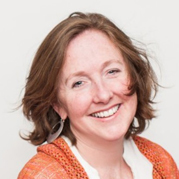
Kiersten has served as the Cancer Support Program Director for Smith Center since 2014. Before coming to Smith Center, she had the privilege to serve individuals and families living with cancer at Wellness House of Annapolis. Kiersten aims to offer programs to reduce stress and help participants to see the world we live in from different perspectives. She thoroughly enjoys teaching yoga and creativity classes at Smith Center and encourages gentle movement and creativity in the healing process. Kiersten is a certified yoga instructor through Yoga Alliance and also has her YCAT (Yoga Therapy in Cancer and Chronic Illness) Professional Certification through the Integral Yoga Academy. She has completed Patient Navigation training through Smith Center’s Institute for Integrative Oncology Navigation and has also completed the Commonweal Healing Circles: Advanced Cancer Support Training. Kiersten is also certified in CLIMB®(Children’s Lives Include Moments of Bravery) a program that aims to build upon the strengths of children and increase his/her ability to cope with stress associated with a parent’s illness. She believes in a holistic approach to healing, human relationships and is grateful for each and every day. In her spare time, you may find Kiersten laughing with friends, cycling, taking art classes, practicing yoga and spending time with her husband Shane, son Liam, and dogs Hooper and Pablo.
with Kiersten Gallagher and Paul Puccinelli

Please join us in a series Healing Circles for Grief “to discover the extent and limits of what is lost, what is left and what is possible.” – John Schneider
If you have lost a loved one, this is an opportunity to share what is on your heart and mind right now, to listen and be listened to deeply and generously. Together we create a safe space for listening to messages from our inner experience.
Our healing circles are a safe and supportive space to walk with each other through these times. Each circle is a blend of sharing and silence, compassion, and curiosity. Our agreements ensure acceptance and confidentiality. We honor our own unique paths to healing and respect the choices of others.
Some Assumptions about Grief
- The experience of grief is unique for each individual. While we can make some general assumptions, there is no template that describes the experience for all people.
- Grief is cumulative. That is, each time loss is grieved, the grief encompasses the lifetime of loss and the remnants of each experience.
- Grief following a significant loss is most often a lifelong process, with each pivotal point in life bringing the grief back up to be processed from a new perspective.
- Grief, loss and suffering fundamentally changes and reshapes the individual.
- Grief is not about forgetting or disconnecting. Rather, healthy grief is about remembering the parts of self that get lost amidst the experience and reorienting the individual in their relationship with self, the world and others.
- Grief is a whole body experience: emotional, physical, spiritual and intellectual. Each have a wide range of expression which can cue us that grief is present.
- While grief and trauma are often intertwined there are significant differences between them. Trauma should be addressed with trauma specific interventions that often go beyond what is possible in circles.
Adapted from Khris Ford
Grieving Together Healing Circle will meet Weekly on Thursdays from 2:30-4:00pm for 6 weeks.
Circle Dates:
- July 29
- August 5, 12, 19 & 26
- September 2
About Kiersten Gallagher

Kiersten has served as the Cancer Support Program Director for Smith Center since 2014. Before coming to Smith Center, she had the privilege to serve individuals and families living with cancer at Wellness House of Annapolis. Kiersten aims to offer programs to reduce stress and help participants to see the world we live in from different perspectives. She thoroughly enjoys teaching yoga and creativity classes at Smith Center and encourages gentle movement and creativity in the healing process. Kiersten is a certified yoga instructor through Yoga Alliance and also has her YCAT (Yoga Therapy in Cancer and Chronic Illness) Professional Certification through the Integral Yoga Academy. She has completed Patient Navigation training through Smith Center’s Institute for Integrative Oncology Navigation and has also completed the Commonweal Healing Circles: Advanced Cancer Support Training. Kiersten is also certified in CLIMB®(Children’s Lives Include Moments of Bravery) a program that aims to build upon the strengths of children and increase his/her ability to cope with stress associated with a parent’s illness. She believes in a holistic approach to healing, human relationships and is grateful for each and every day. In her spare time, you may find Kiersten laughing with friends, cycling, taking art classes, practicing yoga and spending time with her husband Shane, son Liam, and dogs Hooper and Pablo.
with Kiersten Gallagher and Paul Puccinelli

Please join us in a series Healing Circles for Grief “to discover the extent and limits of what is lost, what is left and what is possible.” – John Schneider
If you have lost a loved one, this is an opportunity to share what is on your heart and mind right now, to listen and be listened to deeply and generously. Together we create a safe space for listening to messages from our inner experience.
Our healing circles are a safe and supportive space to walk with each other through these times. Each circle is a blend of sharing and silence, compassion, and curiosity. Our agreements ensure acceptance and confidentiality. We honor our own unique paths to healing and respect the choices of others.
Some Assumptions about Grief
- The experience of grief is unique for each individual. While we can make some general assumptions, there is no template that describes the experience for all people.
- Grief is cumulative. That is, each time loss is grieved, the grief encompasses the lifetime of loss and the remnants of each experience.
- Grief following a significant loss is most often a lifelong process, with each pivotal point in life bringing the grief back up to be processed from a new perspective.
- Grief, loss and suffering fundamentally changes and reshapes the individual.
- Grief is not about forgetting or disconnecting. Rather, healthy grief is about remembering the parts of self that get lost amidst the experience and reorienting the individual in their relationship with self, the world and others.
- Grief is a whole body experience: emotional, physical, spiritual and intellectual. Each have a wide range of expression which can cue us that grief is present.
- While grief and trauma are often intertwined there are significant differences between them. Trauma should be addressed with trauma specific interventions that often go beyond what is possible in circles.
Adapted from Khris Ford
Grieving Together Healing Circle will meet Weekly on Thursdays from 2:30-4:00pm for 6 weeks.
Circle Dates:
- July 29
- August 5, 12, 19 & 26
- September 2
About Kiersten Gallagher

Kiersten has served as the Cancer Support Program Director for Smith Center since 2014. Before coming to Smith Center, she had the privilege to serve individuals and families living with cancer at Wellness House of Annapolis. Kiersten aims to offer programs to reduce stress and help participants to see the world we live in from different perspectives. She thoroughly enjoys teaching yoga and creativity classes at Smith Center and encourages gentle movement and creativity in the healing process. Kiersten is a certified yoga instructor through Yoga Alliance and also has her YCAT (Yoga Therapy in Cancer and Chronic Illness) Professional Certification through the Integral Yoga Academy. She has completed Patient Navigation training through Smith Center’s Institute for Integrative Oncology Navigation and has also completed the Commonweal Healing Circles: Advanced Cancer Support Training. Kiersten is also certified in CLIMB®(Children’s Lives Include Moments of Bravery) a program that aims to build upon the strengths of children and increase his/her ability to cope with stress associated with a parent’s illness. She believes in a holistic approach to healing, human relationships and is grateful for each and every day. In her spare time, you may find Kiersten laughing with friends, cycling, taking art classes, practicing yoga and spending time with her husband Shane, son Liam, and dogs Hooper and Pablo.



